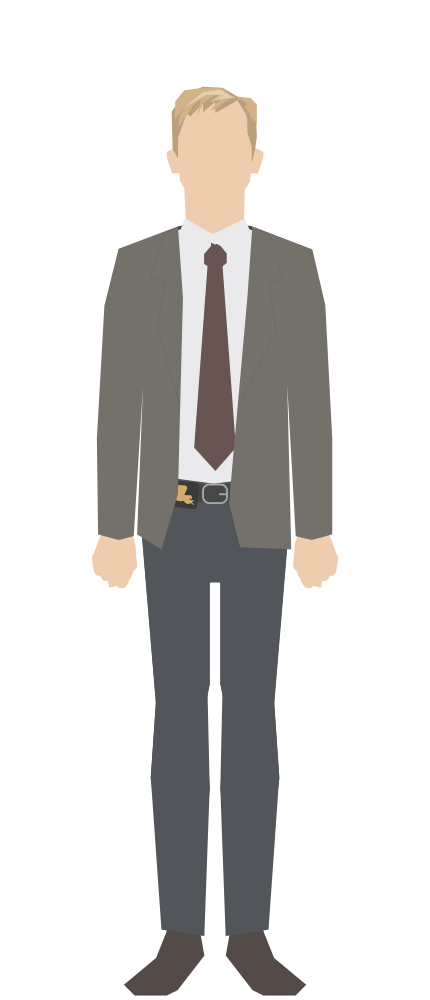I had an intuition that “Haunted Houses” would likely be the weakest episode of True Detective. Structurally, the episode has a lot of work to do to set up the two final episodes (which I expect to be very strong—although episode four, “Who Goes There,” has set the bar really high). Metaphors like tying loose ends or connecting the dots don’t apply well to True Detective—which is, I’d argue, a show about the insanity of looking for satisfactory answers to, y’know, life and death—but “Haunted Houses” nevertheless underlines some of the plot points that will coalesce (or shatter) in the finale episodes.
We finally get to see why Hart and Cohle split up in 2002, and the moment is deeply dissatisfying in its obviousness and predictability, although there is a teleological neatness to seeing Hart fall apart, disappointing both of his partners—Maggie and Cohle—both of whom seem to have seen this coming. Indeed, in this episode, Hart fulfills a prophecy from the second episode, when Cohle wryly suggests that he’s putting a “down payment” on the child prostitute he feebly tries to “rescue” from the woodland brothel.
“Haunted Houses” focuses heavily on Marty Hart, which might be why I found it less engaging than what’s come before. There’s no aggravating Cohle monologue in this episode, and his actions are confined entirely to 2002, where he’s raking through the slime of old cases — “dead women and children” — causing headaches and pissing people off. Cohle, who has lost his own daughter, is keenly attuned to the infanticidal cost of existence. In the episode’s standout scene, he slowly, patiently extracts a confession out of a swampland Medea who has killed all of her children. Cohle has earlier revealed that the simple core of his interrogation technique is rooted in the idea that everyone has sinned and that everyone wants to confess—and he gently guides the mother to confession. Then, in a strange but somehow caring tone, he ends the interrogation: “If you get the opportunity, you should kill yourself.”
Cohle’s detective work begins to knit together the major threads of what we now might as well call the Tuttle case: The big people who are involved in sick shit. The series isn’t at its best when it’s doing the police procedural thing, and even soaked in Southern Gothic noir, some of these scenes play out in broad strokes—but those broad strokes will likely build a foundation for the rest of the drama to unfold on.
The Cohle sequences that don’t involve his detective work seem to frame him from Hart’s point of view—his lines are never quite wholly contextualized as they are in earlier episodes, seasoned and weighted by 2012 Cohle’s dark ramblings. When Hart calls Cohle’s observations on the Tuttle (non)case “pure gibberish,” there’s clearly an invitation here for the audience to agree—or not.
Not that Hart has done anything meaningful lately—let alone “anything heroic,” in his own words. Most of “Haunted Houses” conjures him in wholly abject terms. In the opening scene, he mercilessly beats the two boys his daughter has had (consensual) sex with. The scene is violent and cruel, quickly telegraphing the fact that Hart is a bully. (When asked what types of detectives exist in the opening scenes of the first episode, “bully” is the first descriptor on Hart’s list). He leaves, gets in his car, shuts the door, then opens it again to vomit: Abjection: His guts spilling out, his borders unrestrained. He’s sick. That abjection is underscored later when Hart feels shame at carrying a shopping bag brimming with tampons, and then heavily underscored when his commanding officer refers to him as a “walking tampon.”
Hart attempts to reassert his manhood—his kinghood?—throughout the episode, first by violating the civil rights of the boys in the cell and then by having an affair with a woman young enough to be one of his daughters. When he finds out that Maggie has fucked Cohle in revenge (in brutal and confusing scene), Hart begins to choke her, threatens her, before redirecting his rage into a physical attack on Cohle. None of this behavior helps him to reassert his sense of identity; the 2005 segment closes out with Hart cuckolded, shamed, bloody, abject.
Of course that’s not the end of the episode. In episode four, Cohle left the interrogation room, having got a read on detectives Papania and Gilbough, and also severing (or at least displacing) one of the show’s formal conventions, the interrogation scenes. In episode five, Hart does the same. The interrogation scenes have been a simple but effective way for True Detective to reveal the ways that truth—and implicitly identity—is a construction, a narration: A performance.
Leaving behind the interrogation sequences opens the last two episodes up to something new, which begins in the most interesting part of “Haunted Houses” — the last few minutes, when 2012 Hart meets 2012 Cohle (his first appearance in the episode). Cohle has clearly been tailing Hart, and he hails him from behind (ex-cop pulling over ex-cop), a kind of anti-interpellation, or an interpellation into some other, darker (dis)order. While “Haunted Houses” doesn’t evoke the strange thrills and weird questions that made the first half of the season so compelling, it nevertheless sets the stage for something dark and ugly—some kind of monster at the end of the dream.


